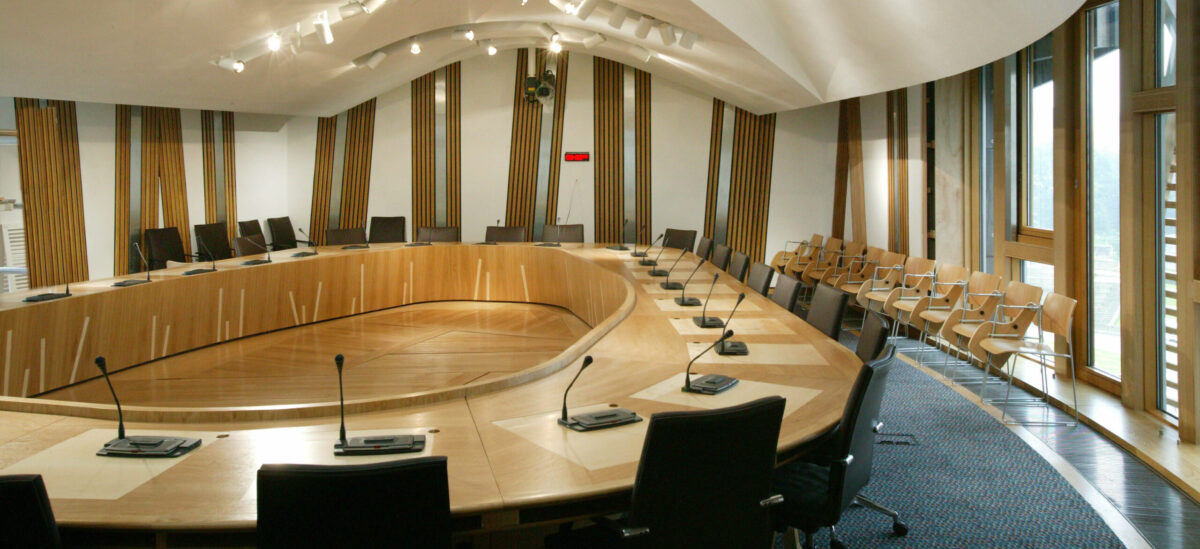Electoral law is replete with qualifications and disqualifications. Entitlement to vote and stand an election includes requirements that the prospective voters or candidates must be registered to vote in the relevant electoral area, must be above the minimum age to vote, must meet certain nationality requirements, and must not be subject to any disqualification from voting.
The disqualifications from participating in public elections are numerous. Members of the House of Lords are prohibited from voting or standing in elections to the House Commons, which was most notably illustrated by the disqualification of the Rt Hon Tony Benn upon his accession to the peerage as Vicount Stansgate (see Re Parliamentary Election for Bristol South East [1961] 3 All ER 354). Individuals who are the subject of a bankruptcy restrictions order (in England and Wales) or whose estate has been sequestered (in Scotland) are disqualified from membership of the House of Commons under s426A and s427 of the Insolvency Act 1986, respectively. Famously, prisoners are generally excluded from the electoral franchise, notwithstanding the decision of the European Court of Human Rights in Hirst v United Kingdom.

One unusual and lesser-known disqualification could be found in s29 of the Local Government (Scotland) Act 1973. Following the 2003 Scottish Parliament election, a second coalition government was agreed between the Labour Party and the Liberal Democrats. One of the key concessions demanded by the Liberal Democrats in this agreement was the introduction of a system of proportional representation for local government elections called ‘Single Transferrable Vote’ (STV). Under this system, single member wards were replaced by three and four member wards, elected through a system of preferential voting. One consequence of this reform is that it is highly unlikely that single parties will dominate a local council which, in turn, meant that a great many councillors faced losing office in the elections that were scheduled for May 2007.
In order to cushion this blow, and to provide an incentive for a refresh of membership of local government in Scotland, s12 of the Local Governance (Scotland) Act 2004 provided for a one-off scheme of severance payments for incumbent councillors who decided not to stand for re-election. Crucially, anyone who accepted a payment under this section was disqualified from standing for election for any local authority in Scotland ever again.
The intention of this provision was fairly obvious: to prevent councillors from pocketing this one-off severance payment and then seeking to return to local government at the next available opportunity. In addition to compensating those councillors who lost out as a consequence of these changes, the scheme was reasonably successful in achieving its secondary objective of refreshing the membership local government in Scotland. The bulk of councillors accepting such payments were toward the end of their careers, and few, if any, have ever sought to return to electoral politics.
Not every councillor who stood down was in this position, however. Sandy Keith was the Labour councillor for Bishopmill East ward of The Moray Council in the north of Scotland. Having been elected as a young councillor in a by-election in 1996, Councillor Keith was re-elected in 1999 and 2003. With a young family, and having accrued a significant period of service, when the Local Governance (Scotland) Act 2004 (Severance Payments) Regulations 2006 were made, Councillor Keith decided to accept a severance payment and stand down at the subsequent election.
The fifteen years that followed that election have been tumultuous in Scotland. The STV voting system is now firmly established in Scottish Local Government. Labour dominance has been replaced with near-hegemony by the Scottish National Party. Very few individuals who held public office in Scotland prior to 2007 still do today.
The 2017 local government elections in Scotland were disappointing for Labour, including the loss of Elgin City North, which covers the former Bishopmill East ward. Following these elections, former councillor Sandy Keith remarked to me that he would be tempted to return to local electoral politics to seek to re-take the seat, if he were not disqualified from doing so. As a lawyer, and an experienced election agent, I was aware of the prohibition, but had hitherto given it little thought. At this point in time, Sandy was still eight years younger than the age of the average councillor in the UK. It seemed to him, and me, that a lifetime ban on standing for election was wholly unjust and disproportionate. In 2018, the Scottish Government announced plans to introduce legislation to reform the franchise and eligibility to stand for elections in Scotland. In January 2019, the Scottish Government introduced The Scottish Elections (Franchise and Representation) Bill (‘the Bill’) to parliament. I sensed an opportunity to right this wrong.
I am fortunate that, in addition to my academic knowledge of the law and legislative processes, I previously worked in the Scottish Parliament, particularly on the development and progress of legislation. While the Scottish Parliament can be every-bit as partisan and divided as Westminster, I knew from experience that the Committees, which play a key role in amending legislation, (sometimes) work on a more open and collegiate basis. I contacted Neil Findlay MSP, who was a member of the Standards, Procedures, and Public Appointments Committee (‘the committee’), which was charged with reviewing and amending the Bill, and proposed an amendment. Mr Findlay wholeheartedly agreed. I then contacted Mike Russell MSP, Cabinet Secretary for Constitutional Relations, who was the minister responsible for the bill.
In my correspondence with Mr Russell, I made the following case:
A lifetime ban on seeking re-election appears to be wholly disproportionate. Restrictive covenants like this in private law are rarely, if ever, permitted by the courts. It should be noted that many MPs elected last month (in particular on the SNP benches) received ‘Loss of Office’ payments in 2017 which were no barrier to them returning to Parliament a mere 30 months later. You, too, received such a payment in 2003 only to return to Holyrood four years later. Such discriminatory treatment only further undermines the objective justification for the initial disqualification. Furthermore, the number of persons affected by repealing the disqualification is likely, now, extremely small – making the case for its repeal all the more persuasive.
By the time of the next set of local government elections in 2022 fifteen years will have elapsed since the 2007 election – an incredibly long period of time (a life sentence in many cases). In the context of Bill that is designed to expand the electoral franchise and eligibility to stand for election this amendment is both timely and appropriate.
On 16 January 2020, the committee considered my amendment, as proposed by Neil Findlay MSP:
As can be seen, many of the arguments made above were made within the committee and, with the exception of the Green MSP Mark Ruskell, were broadly accepted and supported. Crucially, the Cabinet Secretary, Mike Russell MSP, concurred and the amendment was agreed by the committee.
The Bill received Royal Assent on 1 April 2020, and was commenced on 3 August 2020. Having been disqualified from standing for election for over fifteen years, Sandy Keith was nominated for election to the Moray Council in March 2022. On 6 May 2022, Sandy Keith was comfortably re-elected to The Moray Council, and I was his election agent.

This saga, I hope, demonstrates the value of knowing the law and the legislative process; and appreciating that laws with which we disagree can be changed. As scholars of the law, we are well placed to influence the legislative process and achieve outcomes that are fair and just. I would urge all legal scholars to pay close attention to bills going through parliament. You never know, you might just change the law…

Dr Stuart MacLennan
Associate Professor of Law
Dr MacLennan is an Associate Professor in the Law School and an Associate Member of the Centre for Financial and Corporate Integrity.
Disclosure statement: Dr Stuart MacLennan is a member of the Labour Party.

